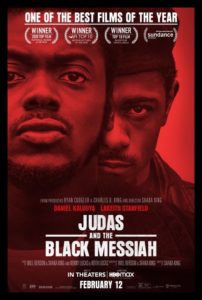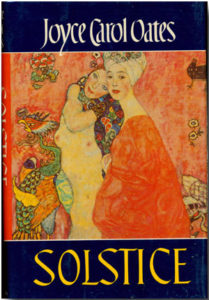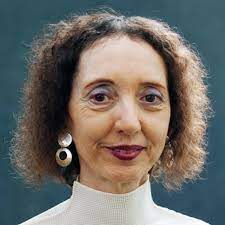“Voting is as much an emotional act as it is an intellectual one.” – Monica Crowley
Georgia’s Controversial New Voting Law
So, is this new law racist? Is it some new version of Jim Crow?
It’s no longer possible to get a trustworthy answer to a political question by going to any single source – right or left. To answer even a question about facts, like this, you have to read multiple accounts from both sides and then (if you can get it) source material.
I did. And this is what I’ve found.
There are four primary criticisms against the law:
- It decreases and restricts voting hours.
- It denies water to voters waiting on line.
- It requires voter ID, which many Black Americans don’t have access to.
- It is racist – a new form of Jim Crow.
Claim 1. The new legislation would restrict voting by decreasing early voting hours and mandating that polls be closed at 5 p.m.
* Biden: “It’s ridiculous. Closing the polls at 5.”
* Chuck Schumer: “Republicans recently passed a bill to eliminate early voting on Sunday – a day when many church-going African-Americans participate in voter drives known as Souls to the Polls.”
The Facts: This is flat-out false. Voting hours, in fact, were expanded by adding an extra mandatory Saturday of early voting and continuing to allow Sunday voting. Early voting now must be open from at least 9 a.m. to 5 p.m., a step up from the “normal business hours” required by previous law. Counties can extend those hours to 7 a.m. to 7 p.m., as many have done in the past.
Claim 2. The bill denies voters, waiting on line to vote, easy access to water.
* Biden: “It’s an atrocity… You can’t provide water for people about to vote? Give me a break!”
* James Carville: “It is going to be illegal to give water to somebody that’s standing in line to vote. I have never heard of water being an illegal substance in the United States.”
The Facts: False. The law allows for free and easy access to water for voters, either by providing unattended receptacles of bottled water or hand-distributed by poll workers. What it prohibits is the distribution of anything – flyers, candy, water, soda – by political partisans within 150 feet of a voting building. (This was done to support the existing prohibition against political promotions by either party within 150 feet of a voting building – a regulation that is common in both Blue and Red states.)
Claim 3. The Georgia election law suppresses the vote by requiring onerous voter ID requirements that disproportionately affect Black voters.
* Biden: The voting ID requirements “adds rigid restrictions… that will effectively deny the right to vote to countless voters.”
* Facebook: “We support making voting as accessible and broad-based as possible and oppose efforts to make it harder for people to vote.”
The Facts: Half true. Half false. Yes, the law requires voters to present some form of legally valid ID, such as a driver’s license or a state ID card. But if the voter doesn’t have that, he can furnish his Social Security number. But no, there is no evidence that ID laws decrease voter turnout. Nor is there any evidence that African-Americans are less likely to carry ID than other Americans. 97% of Georgia voters have a driver’s license or a free state voter ID. And almost all have a Social Security number, the last four digits of which can be used to cast an absentee ballot thanks to the new law.
Claim 4. The bill is racist and harkens back to Jim Crow.
* Biden: “This makes Jim Crow look like Jim Eagle. I mean, this is gigantic what they’re trying to do, and it cannot be sustained.”
* Elizabeth Warren: “The Republican who is sitting in Stacey Abrams’ chair just signed a despicable voter suppression bill into law to take Georgia back to Jim Crow.”
The Facts: Jim Crow laws – which included segregation, poll taxes, grandfather clauses, and literacy tests – were designed to restrict African-American voting. Obviously, the Georgia law makes no distinctions based on race. So, the logic behind those that have criticized the law must be based on either the absurd notion that African-Americans are more in need of water or less likely than other Americans to carry ID.
What’s Going On?
One view comes from Kay James (who is an African-American), president of the Heritage Foundation. She says the criticism is an “attempt to rally support for a bill currently in Congress, ironically called the For the People Act, or H.R. 1, that would actually allow for greater fraud and election tampering. It would allow illegal votes to cancel out legal ones. It would diminish the very voting rights that my relatives in the 1960s, the women suffragists of the early 1900s, and all the men and women of the armed forces throughout our history fought so hard to gain and protect.”
I talked about H.R. 1 here.
My view is that this bill is about political power. The Democrats want to increase voter turnout among certain groups they consider likely to vote Democratic, including African-Americans, illegal immigrants from Central America, and convicts. Republicans want to limit voter turnout among these groups.
But of the claims made by Biden and others about the Georgia law, three were absolutely false, and the fourth – that the requirement of a voter ID would decrease the African-American vote – is not only unsupported by evidence but is patently racist.
Take a look at this…
And this…
What do you think?




